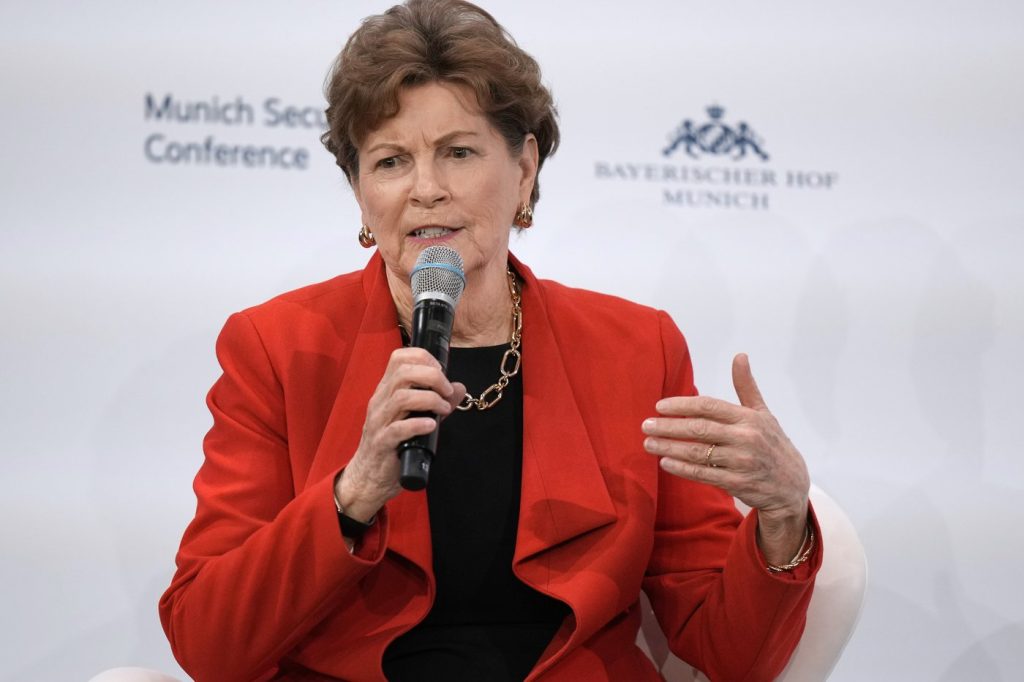In a noteworthy bipartisan collaboration, Senators Jim Risch (R-Idaho) and Jeanne Shaheen (D-New Hampshire) have introduced new legislation aimed at combating the influx of fentanyl and its precursors into the United States. This legislative push is seen as part of ongoing efforts to address the crisis tied to opioid trafficking, predominantly from China and Mexico. President Donald Trump has cited this issue as a justification for his administration's tariffs on imports from these countries, alleging that they have not adequately addressed the trafficking of fentanyl.
While the newly introduced bill does not directly link tariffs to fentanyl smuggling, it seeks to grant expanded authority for the U.S. government to impose sanctions on Chinese state-owned or state-controlled entities, such as banks that are financing foreign opioid trafficking. Additionally, the measure mandates increased tracking of chemicals used in the production of fentanyl, reflecting a multifaceted approach to tackling the epidemic.
Senator Risch emphasized that China is the primary source of fentanyl and its synthetic opioid precursors, accusing the Chinese government of complicity in the drug trafficking activity. He expressed the urgency of the situation, highlighting that over 100,000 Americans die each year due to opioid overdoses attributed to these substances. Risch’s sentiments were echoed by Shaheen, who called for the utilization of every available resource to stem the flow of fentanyl into the U.S., pinpointing China as a key supplier of the precursors fueling the crisis.
In response, Liu Pengyu, a spokesperson for the Chinese Embassy in Washington, accused the U.S. of disseminating false narratives regarding the fentanyl crisis. He asserted that China is open to pragmatic cooperation with the U.S. based on mutual respect but firmly opposes the U.S. using the fentanyl issue as leverage against China.
A report from a special House committee last year suggested that the Chinese government plays a role in exacerbating the fentanyl crisis by subsidizing the production of materials used by traffickers to manufacture fentanyl outside the U.S. Despite these claims, the Chinese government asserts that it has taken significant measures to combat fentanyl-related crimes and has enforced strict regulations over the precursors associated with fentanyl production.
In recent developments, the Chinese Ministry of Public Security announced the arrest of a suspect linked to a complex drug trafficking and money laundering scheme involving the U.S., Mexico, and China. This individual allegedly operated an auto sales business tied to illicit currency trading in the U.S.
The Drug Enforcement Administration (DEA) has documented that fentanyl precursors and equipment necessary for pill production are being transported from China to clandestine labs in Mexico, which then convert them into fentanyl products for smuggling into the U.S. The DEA further reported that proceeds from these drug sales are often laundered through underground banks operating in China.
However, the recent implementation of tariffs by the Trump administration on Chinese goods threatens to undermine cooperative efforts between the two nations regarding the fentanyl issue. The Chinese government has expressed its displeasure at being linked to U.S. tariffs, cautioning that increased pressure from the U.S. could jeopardize the counternarcotics dialogue and collaborative measures necessary to effectively combat the drug crisis.
The Chinese Foreign Ministry stated that the U.S. bears primary responsibility for the fentanyl crisis within its borders, insisting that China has made substantial efforts to assist the U.S. in addressing the issue. They reiterated that further moves to ratchet up tariffs could hinder ongoing cooperation efforts.










